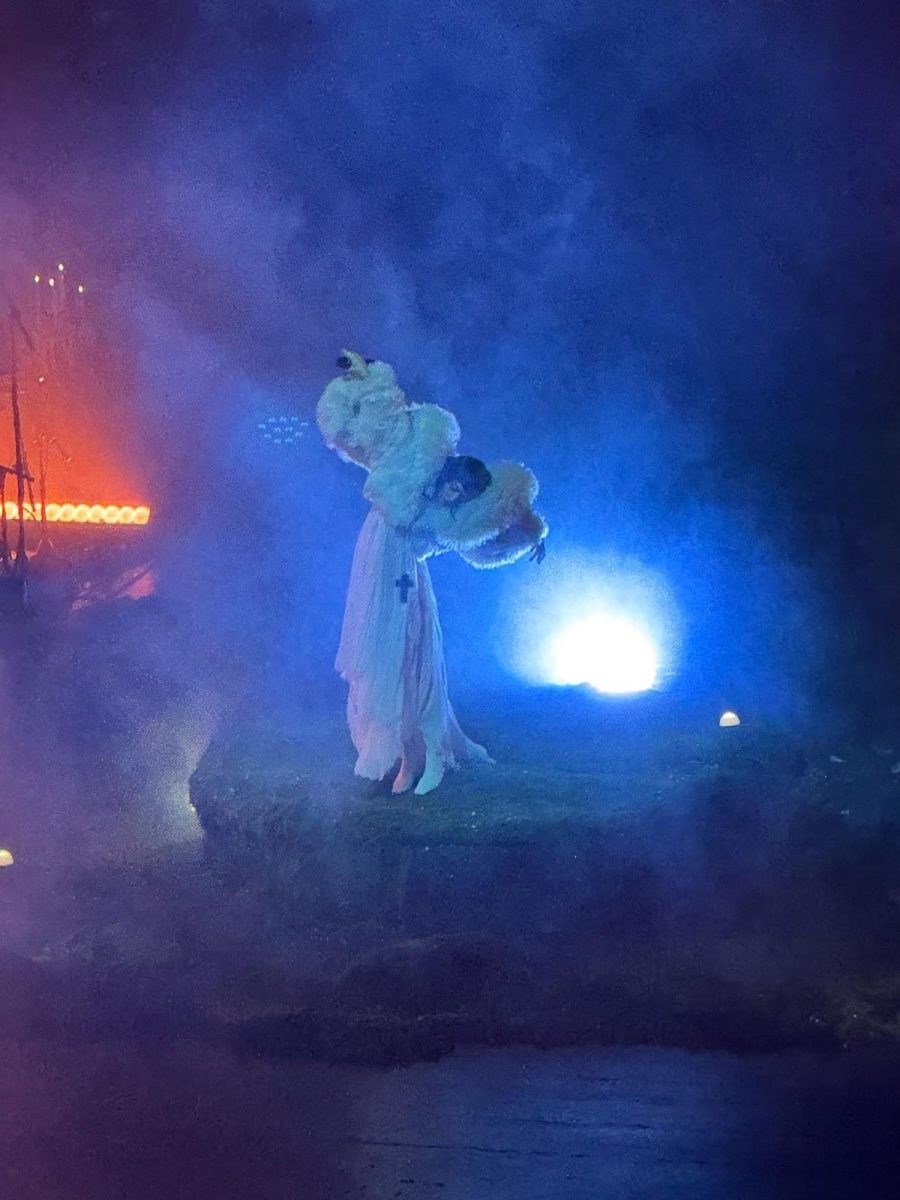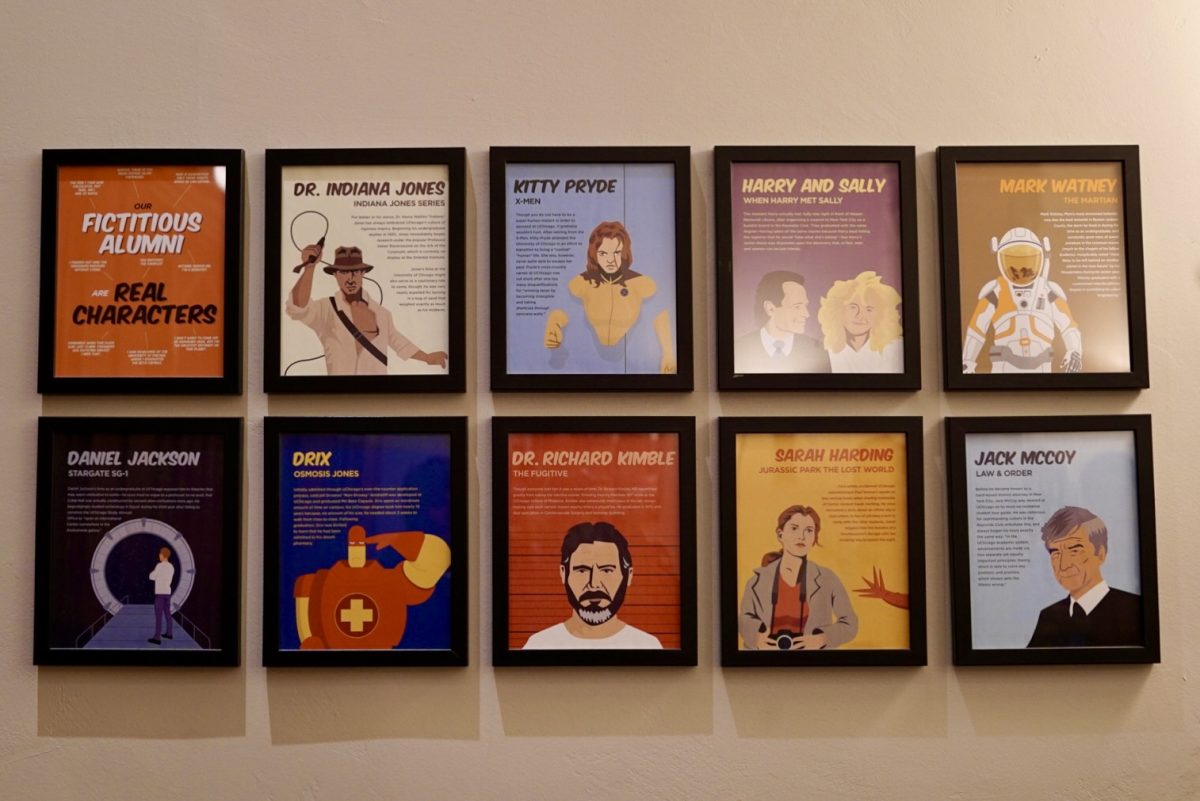Nowadays most movies are either sequels or remakes, with those few exceptions being so clichéd that they more closely resemble vomit than film. It would appear originality has taken a backseat to regurgitation in much the same way storytelling has taken a backseat to special effects. In the midst of such intellectual vacuity, Adaptation is a refreshing anomaly that is both clever and poignant. Vin Diesel fans, beware.
Adaptation is written by Charlie Kaufman and directed by Spike Jonze, the same maniacs who concocted Being John Malkovich. In a way, their movies are similar to Michael Jackson–unclassifiable, and weird as all hell. Though Adaptation isn’t quite as wacky as Malkovich, it is just as original. If there is anything that characterizes these movies, it is their adept blending of fiction with nonfiction and fantasy with reality, along with the usage of a sprawling, unpredictable plot.
To explain the genius of Adaptation is deceptively simple: it’s about itself. The movie features Charlie Kaufman (Nicholas Cage), an eccentric screenwriter who fumbles through relationships with women and torments himself with neurotic, self-deprecating inner monologues. At times, he might as well carry around a sign reading “Please sympathize with me.” Charlie lives with his dopey, happy-go-lucky brother Donald (also Nicholas Cage) and has been handpicked to adapt The Orchid Thief, an evocative novel written by the secretively desirous Susan Orlean (Meryl Streep).
The Orchid Thief concerns the plight of John Laroche (Chris Cooper), a curiously slipshod hick who immerses himself in a lucrative–and often illegal–hunt for beautiful and rare flowers. In order to complete her novel, Susan decides to tag along with him. Surprisingly, John possesses a blunt honesty and diligence that captivates Susan, leading her to search for some metaphorical flowers of her own. The plot bounces back and forth between these two story-arcs–Charlie Kaufman struggling to write a faithful script, and Susan mesmerized by John’s dedicated pursuit–before finally culminating in an ending that is delightfully satirical and melodramatic.
Nicholas Cage as identical twins could have been disastrous. After all, how could anyone possibly compare with Jean Claude Van Damme’s cathartic portrayal of Chad and Alex in Double Impact? Thankfully, Cage is more than up for the challenge, playing twins that are easily distinguishable, although only dissimilar in personality. It’s times like this you wonder why Cage wanted to be a burly action hero so much; he is much too proficient to speak monosyllabically and point guns.
In fact, his stellar performance is somewhat reminiscent of the inconsolable Gollum in The Two Towers. While it is obvious the interactions on screen are bogus, the acting is so damn good that you completely suspend any disbelief. It’s so refreshing to see technology aid cogent storytelling for once–a certain director with the initials G.L. should consider doing the same. After all, draping colorful CGI over egregious writing does not a good movie make.
What Adaptation really excels at, though, is its presentation of multiple themes. Those looking for something clear-cut will surely end up unimpressed and disgruntled, as this film is inexorably ambitious. Adaptation explores the roller coaster of writing, the fatigue of self-doubt, the stab of longing, and the idea of people as flowers all at once; an exhilarating ride that lurches forwards, backwards, and sideways. Kaufman’s attempt to faithfully adapt a story that doesn’t warrant it is daring, and the presentation of both the themes he’s trying to illustrate and the struggle he has doing so is captivating. After seeing Adaptation, you feel like you’ve not only seen the movie, but the making of it as well, and you’ll like or dislike the moviedepending on how cool you think that is.
Though Adaptation is impressive, it won’t win everyone over. Some people just won’t swoon over shrewdness, and for them the movie will be too smart for its own good. The film is more driven by ideas than emotion, and is so self-aware that it recognizes its biggest criticisms–an act that could either be seen as brilliant or careless. As Charlie Kaufman starts writing his script in the movie, he laments, “I wrote myself into my own screenplay! I can’t do that, it’s pretentious, it’s self-indulgent!” It certainly is presumptuous; and while it does expand the movie’s scope, it could also be construed as slapdash. If the movie’s Charlie Kaufman wasn’t there to describe what this is all about, would you still have gotten it? Who knows? Depending on the viewer, Adaptation will either be tremendous art or tremendously artsy–myself, I’d agree with the former.
All in all, Adaptation is one of the best films of the year, and demands to be seen, as it possesses an intoxicating story and robust humor. Perhaps my favorite character is Donald Kaufman, who presents a parody of Hollywood. Whereas Charlie sweats and toils over his original idea, Donald finishes his own script with ease. Though Donald only writes about Hollywood’s most hackneyed stories and concepts, he receives more monumental praise from Charlie’s manager than even Charlie himself does. Is it possible for something unique to be truly appreciated? I don’t know, but as far as originality in Hollywood, Adaptation is not only an argument, but a testament as well.








